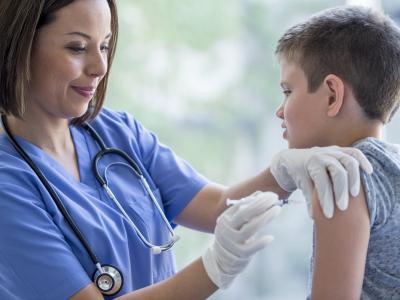Clinical pathway linked to improved antibiotic prophylaxis in peds surgery
Italian researchers report that an antimicrobial stewardship program based on a clinical pathway (CP) was associated with both an improved choice of antibiotic and duration of perioperative antibiotic prophylaxis (PAP) in pediatric surgical patients. The findings appeared yesterday in Antimicrobial Resistance and Infection Control.
The pre-post quasi-experimental study, conducted in the pediatric surgical unit of Padua University Hospital, assessed the changes in PAP appropriateness and the effect on surgical-site infections (SSIs) in the 6 months preceding CP implementation and the 6 months after implementation. The CP, which details all the steps needed to administer correct PAP to pediatric surgical patients, was developed by a multidisciplinary group of pediatric infectious disease, microbiology, and pediatric surgery specialists and based on the main guidelines for PAP in adult surgical patients.
The study included 766 children from 1 month to 15 years of age, with 394 in the pre-intervention group and 372 in the post-intervention group. After CP implementation, there was an increase in appropriate PAP administration, as well as in the selection of the appropriate antibiotic for prophylaxis, both for monotherapy (from 81% to 91.9%, P = 0.02) and combination therapy (from 65.9% to 100%, P = 0.004).
The duration of prophylaxis also decreased after CP implementation, with an increase in correct PAP discontinuation from 45.1% in the pre-intervention period to 66.7% post-intervention (P < 0.001). Despite the greater use of narrow-spectrum antibiotic for fewer days, there was no increase in SSIs (10/394 (2.5%) pre-intervention vs. 7/372 (1.9%) post-intervention, P = 0.54).
The authors of the study conclude, "CPs with a proper educational intervention can be a useful tool to improve the choice of first-line antibiotic and the duration of PAP in pediatric patients."
Jan 15 Antimicrob Resist Infect Control study
Study: Healthcare-related MRSA rates drop almost in half in Germany
From 2007 to 2016, nonsocomial transmission of methicillin-resistant Staphylococcus aureus (MRSA) dropped significantly in German intensive care units (ICUs) and surgical departments, according to a study published in Journal of Infection.
The study was based on data collected from the voluntary German National Nosocomial Infection Surveillance System and included information from 1,218 intensive care units (ICUs) and 1,556 surgical departments. A total of 14,408 nosocomial MRSA infections were documented during the study period.
The overall decrease in the proportion of MRSA among all healthcare-associated S aureus infections dropped from 37.1% to 20.0% during the 10-year period, a 46.1% decline. In both ICUs and surgical wards, MRSA rates decreased from 37.1% to 21.8% (a 42.4% reduction) in bloodstream infections and 38.7% to 19.2% (50.4% drop) in lower respiratory tract infections. Surgical-site infections caused by MRSA decreased from 21.1% to 7.4%, a 64.9% reduction.
An especially impressive decrease was seen in surgical departments, where overall MRSA proportions fell from 20.4% to 9.4%, a 53.9% drop.
"MRSA still remain[s] a relevant part of healthcare associated infections due to Staphylococcus aureus in Germany. Nonetheless, a significant decrease of its proportion occurred over the course of the past 10 years," the authors concluded.
Jan 15 J Infect study













